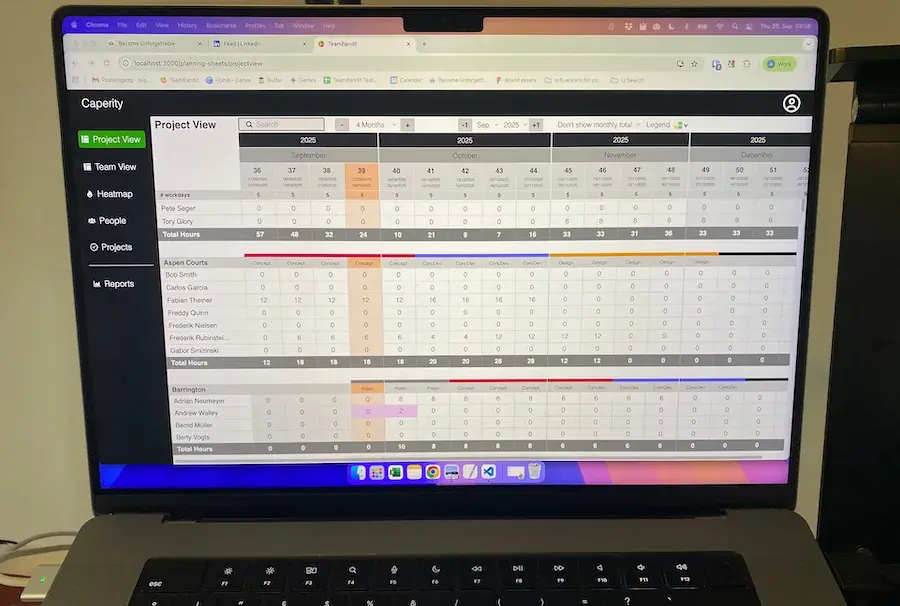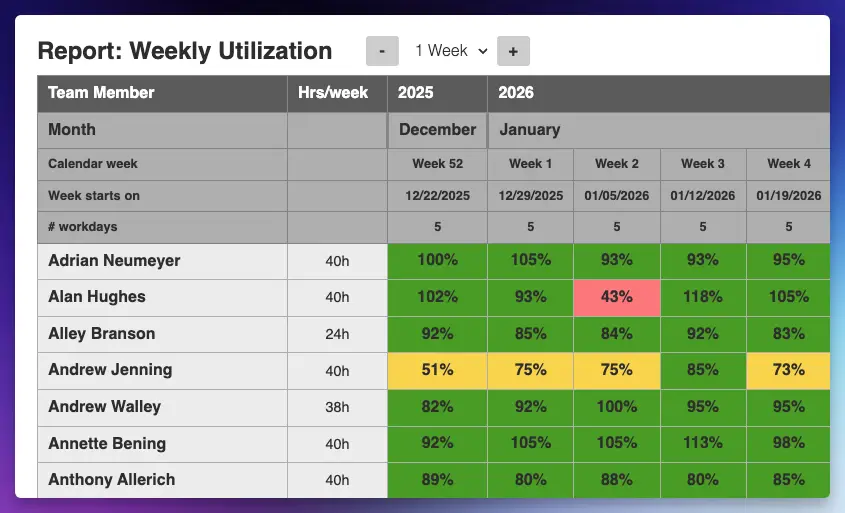The day you realize you ruined your own project is a day you will never forget. The project that nobody talked about suddenly becomes the hot topic in the office kitchen. Not as a role model for excellent leadership, unfortunately. But as an epic failure.
It’s a terrible humiliation that I want to spare you. That’s why I’ve written this article.
I’m covering common mistakes project managers make that are a good predictor of project failure. Also, I’m sharing advice on how you can avoid those mistakes.

1. You are trapped by paralysis
Falling into paralysis during the the early project phase is a problem many project managers face. Often it’s not the actual scheduling that people are struggling with. You are overwhelmed by an ambitious project goal — and you don’t know how to get there.

As a consequence you loose valuable time, because the project should already be in execution mode but you’re still figuring out a plan. Not good, because with the go-live date usually set in stone your project is likely going to face a delay.
To find your way out of this paralysis, you first need to understand what your problem is:
- Are you struggling with identifying the necessary project tasks?
- Are you struggling with effort estimation?
Whatever your challenge may be, it’s always a good idea to break your project into smaller pieces and sub-goals. Take for example the construction of a house: Laying the foundation is the first step, then you build the walls and frame, add the roof and so on. Taking such a close-up view will make planning a lot easier.
If you are unsure about what steps are needed to make the project goal happen, a great approach is to learn from similar projects. Chances are your project is not the first of its kind, right? So you could talk to people who have managed similar projects — both from inside your company and from other companies. Also, you could search on Google for project plans of similar projects. There is a lot of great material out there.
2. Your project plan isn’t good
A poor project plan is vague and doesn’t define clear responsibilities. If you are being honest with yourself, you know you have no clue deliver the project successfully. Your project is more of an ‘everything’s gonna be alright’ jam session.
Well … good luck with that.
If you don’t properly plan your project, this might be the end of it.

A good project plan on the other hand states exactly what each party has to do and by when it must be done. You’ve thought through every step and how it ties into the next one. As a result your plan works like a smooth cogwheel.
3. You are not communicating enough

Poor communication is another project killer. I’d even go as far to say that most projects fail because of poor communication. Here’s why:
- Time is wasted because people don’t know what they have to work on.
- Issues are creeping around unresolved for a long time because they are not communicated to the right person.
- Misunderstandings take a lot of time to clarify, taking valuable time away from the project
It is your responsibility as project leader to ensure these things don’t happen. There should always be a good level of communication, both within the project team but also with stakeholders.
How can you facilitate communication in your project? Your first step should be to create a project communication plan which states when and how updates are being shared within a project. This includes regular status meetings with the team, email updates, escalation paths in case of major issues and more.
4. You are falling behind on work
Here’s what typically happens when you fall behind with work: you have 143 unread emails, and every minute people bombard you with new questions by email or phone. And then, issues start to get escalated. Your manager calls you to stop by his office: What’s going on here? Do we have a problem?

This is when you as project manager have become the bottleneck of the project. Definitely not a great situation to be in. When you are the bottleneck you can’t dedicate attention to the project. But your team desperately needs directions, support and encouragement.
How can you avoid falling behind?
- The first thing you should learn is to prioritize. Not every issue and every email is equally important. There are clearly a few things which are critical for your project, and others that don’t matter that much. You should be able to tell the difference.
- You need good systems so you can get more work done in less time. This matters especially for tracking project work. Have no system yet? See how I manage open items in a super-effective way.
- Start to delegate more of the work. As project manager you should mainly do coordination work, but not the actual project work. This is what you have a team for.
- Schedule time for yourself to process your emails. For example, you can block one hour in the afternoon every day to read and answer emails and update the project to do list.
- Work longer hours if needed. I know is not what you want to hear. But the thing is, you can’t allow yourself to be the bottleneck.
5. You are allowing tasks to be delayed
Project deadlines are defined for a reason: To make sure the project can be delivered on schedule. If you allow project activities to stretch beyond agreed deadlines, you are creating the conditions for project failure.
Now, I’m not talking about circumstances you can’t control: A team member falling sick for example, or an unforeseen technical problem that puts your project into standstill. These things happen no matter how well you’ve planned everything.
What I mean is you must be strict with deadlines and not accept misses without a good reason. Is ‘I’ve got too much work to do’ a good reason? Well, you need to look closely. While this may be true in some cases where people are totally overloaded, it may also be a convenient excuse. After all, don’t we all have too much to do?

Being strict with deadlines is the #1 rule to avoid delays. Read about my other ways for avoiding project delay.
As a general rule in project management, you should follow up with people on a regular basis. Is your team making progress on their tasks? Is there anything preventing them from completing a job? Are they waiting for input from someone else? These are the questions you need to ask so you won’t even run into a delay. If you want to read more on this topic, here are some more tips on how to ensure people stick to deadlines.
6. You are ignoring issues
Sooner or later your project will run into issues. The challenge is to see them before they cause major damage and to take appropriate measures for their resolution. In theory this sounds easy. You spot an issue and you fix it. In the real world this isn’t as easy.

Here’s why:
The first hurdle is you have to accept the existence of an issue instead of denying it. As humans we’re not particularly good at that, especially when we are part of the problem. We might have overlooked something, underestimated the effort for a task or misunderstood some piece of information. Having the guts to admit our mistake and clean up the mess takes a good amount of courage. But you should always strive for honesty and integrity.
Another really common challenge is group think. Your gut might tell you something isn’t right. But your environment — your boss and your coworkers — don’t (want to) see the issue. Now you have two options: Follow the crowd and run into the risk of ignoring an issue. Or pulling up your sleeves and facing the problem. Either way is going to be painful, right? But if you want to deliver a successful project, the second option is the right path.
7. You are trying to please everyone
Projects are always controversial. One reason are the organizational changes that projects go along with. Another reason is massive workload project team members often struggle with. A third reason is lack of strategic alignment inside the organization: Some department may promote a project while others will do everything to block it. That is project management!
What you need to understand is that you can’t make everybody happy. If you still try please everyone, you will end up getting nowhere. Because you’ll always be adjusting to opposing goals.
Instead, do what’s necessary to meet the project goal and accept the fact that not everybody will love what you do. That’s not an easy lesson to learn. But if you internalize this mindset, it can take you very far.
The good news
Congratulations! You just finished reading this long article. My goal was to show you how your own behavior can get in the way of project success and ultimately lead to project failure. The good news is that by keeping those pitfalls in mind, you can actually avoid failure. Just be honest with yourself and always monitor your own behavior.
Finally, my question to you:
Which of the points do you have to work on the most?
Leave a comment below.
Author
-
Hi, I’m Adrian, a Senior Project Manager and the Creator of Tactical Project Manager, where I teach a pragmatic approach to project management. Led large-scale IT and business projects for over 10 years. My goal is to enable you to lead any project with confidence.
View all posts


